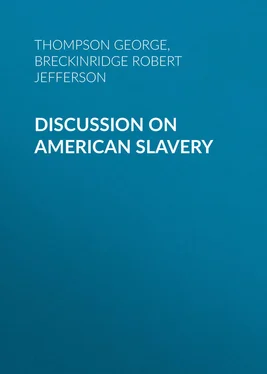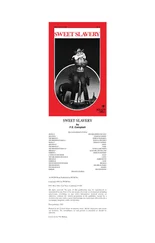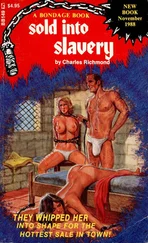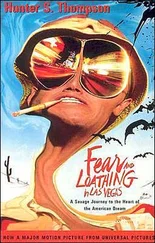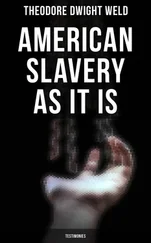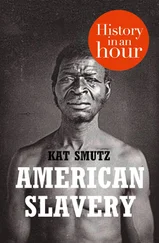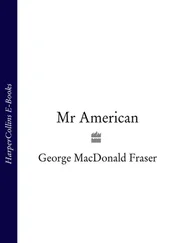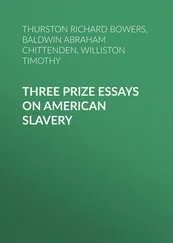George Thompson - Discussion on American Slavery
Здесь есть возможность читать онлайн «George Thompson - Discussion on American Slavery» — ознакомительный отрывок электронной книги совершенно бесплатно, а после прочтения отрывка купить полную версию. В некоторых случаях можно слушать аудио, скачать через торрент в формате fb2 и присутствует краткое содержание. ISBN: , Жанр: foreign_antique, foreign_prose, на английском языке. Описание произведения, (предисловие) а так же отзывы посетителей доступны на портале библиотеки ЛибКат.
- Название:Discussion on American Slavery
- Автор:
- Жанр:
- Год:неизвестен
- ISBN:http://www.gutenberg.org/ebooks/32500
- Рейтинг книги:4 / 5. Голосов: 1
-
Избранное:Добавить в избранное
- Отзывы:
-
Ваша оценка:
- 80
- 1
- 2
- 3
- 4
- 5
Discussion on American Slavery: краткое содержание, описание и аннотация
Предлагаем к чтению аннотацию, описание, краткое содержание или предисловие (зависит от того, что написал сам автор книги «Discussion on American Slavery»). Если вы не нашли необходимую информацию о книге — напишите в комментариях, мы постараемся отыскать её.
Discussion on American Slavery — читать онлайн ознакомительный отрывок
Ниже представлен текст книги, разбитый по страницам. Система сохранения места последней прочитанной страницы, позволяет с удобством читать онлайн бесплатно книгу «Discussion on American Slavery», без необходимости каждый раз заново искать на чём Вы остановились. Поставьте закладку, и сможете в любой момент перейти на страницу, на которой закончили чтение.
Интервал:
Закладка:
He hoped he would yet have ample opportunities of replying to the positions assumed by his opponent. He thought he would be able to show that slavery in America was American slavery; that the Congress of America – that the Constitution of America made it an institution of the country, and therefore a national sin of America. In reference to any question as to the Constitution and laws of the United States of America, he was glad he had to do with a gentleman who knew these well, who held a high character for his Constitutional and legal attainments; and he hoped he would be able to show that Slavery in America was American Slavery – that the people in the North did not hate slavery – that they did not oppose slavery – that they were the greatest supporters of slavery in the United States – that slavery in America was a national question. But he would keep his proofs till he had time to say something along with them. Our interference was not a political interference with America, it was only a moral interference, to put an end to slavery – and he hoped the people of this country, would continue to denounce slavery in America; and at the same time he was quite willing that his opponent should denounce the idolatry of our eastern possessions.
Mr. BRECKINRIDGE said, he would take up the line of argument in which he had been proceeding; but before doing so he wished to make one observation. How did it happen – admitting all that had been said by his opponent to be true and fair, how did it happen, that the same arguments and the same principles were so differently received in different countries? How did it happen that the individual who advocated the same cause, with the same temper, and almost in the same words, in Glasgow and in Boston, should in the one place be supported by general applause, and in the other be ill-treated and despised, and even made to flee for his life? This was a question which was yet to be solved. Mr. Thompson had spoken of the Northern states as the greatest friends of slavery, forgetting that he had formerly represented the clergy as such. This was one of the principal reasons of his want of success – of what might justly be called his signal failure. He had brought unjust charges against an entire people, and had in consequence been ill-treated. Mr. Thompson had shown the better part of valor, discretion, in taking care never to visit any of the slave states. He had never seen a slaveholder, except, perhaps, he had met such an individual in a free state. At least if he had done so, it was a circumstance which was not generally known, one of those hidden things of which it was not permitted to read. Having made this observation, he (Mr. B.) would proceed to state that in the slaveholding states there was a large minority – in some, nearly one half of the population – zealously engaged in furthering the abolition of slavery. In Kentucky, slaveholding had been introduced only by a small majority. When some time after, a convention canvassed the subject, that majority was diminished, and, still at this hour in that State, in which he had been born, one of the greatest political questions agitated was whether slaveholding should be abolished or retained as an element of the constitution. A law had long ago been passed imposing a fine of six hundred dollars on whoever brought a slave into the State for sale, and three hundred dollars on whoever bought him. A fine of nine hundred dollars was thus made the penalty of introducing a slave into Kentucky as merchandise. He was sorry to have to speak of buying and selling human beings; but, to be understood, it was absolutely necessary that he should do so. In Virginia also, from which Kentucky had been in great measure peopled, not many years ago a frightful insurrection had taken place, and many cruelties had been practised – it was needless to say whether most on the side of the blacks or the whites. The succeeding legislature of that State took up the question of slavery in its length and breadth – passed a law for giving $20,000 to the Colonization Society, – and rejected only by a small majority a proposal to appropriate that fund equally to the benefit of slaves to be set free – as of those already free. He mentioned these things merely to show that there was a great and an increasing party in the south favorable to the abolition of negro slavery. In fact, in some of the Southern states the free people of color had increased faster than the whites; in Maryland alone there were 52,000 of a free colored population, all of whom, or their immediate progenitors, had been voluntarily manumitted. It was needless to say, therefore, that in the Southern states there was no anti-slavery party. There certainly was not such a party in Mr. Thompson's sense of the word; but Mr. Thompson's definition was not the correct one, as he (Mr. B.) would explain directly. Was it fair then, he would ask, to hold up to the British public, not only the people of the free states, but also this great minority in the Southern states as pro-slavery men. Let slavery be denounced, but let not the denunciation fall upon the whole American people, many of whom were doing all they could for its abolition. If Louisiana resolved on perpetuating slavery, let this be told of Louisiana. If South Carolina adhered to the system, say so of South Carolina; but do not implicate the mass of the American people, so many of whom are as much opposed to slavery as is Mr. Thompson himself. He had heard it said that the sun never sat on the British dominions. As well, then, might the British people be identified with the idolatry which prevailed in Hindostan as the Americans be identified with negro slavery. The question was not American; it existed solely between the slaveholder and the world. It was unfair, therefore, to blame the Americans as a nation: the slaveholder, and the slaveholder alone, should be blamed, let him reside where he might. Having thus disposed of the first branch of his argument, he was naturally led to explain the wonderful phenomenon of Mr. Thompson's reception in America – to give a reason why that reception was so different from what the same gentleman met with in Glasgow. Mr. Thompson had taken up the question as one of civil organization. Now the fact was, that the American nation was divided into two parties on the subject, namely, the pro-slavery, and the anti-slavery parties. One party said, let it alone; the other, and by far the most numerous party, said, something ought to be done in relation to it. In the last named class, was to be included the population of all the non-slaveholding states. He declared, in the presence of God, his conviction, that there was not a sane man in the free states who did not wish the world rid of slavery. He believed the same of a large minority in the states in which slavery existed. The pro-slavery party themselves were also divided. One section, and he rejoiced to add, a small one, called into exertion in fact only by that effervesence which had been produced by the violence of Mr. T's friends – spoke of slavery as an exceedingly good thing – as not only consistent with the law of God, but as absolutely necessary for the advancement of civilization. This party was organised within the last few years, and met the violence of Mr. Thompson's party by a corresponding violence, as a beam naturally seeks its balance. Another section of the pro-slavery party, considered slavery a great evil, and wished that it were abolished, but they did not see how this could be effected. They had been born in a state of society where it had an existence, and they could see no course to adopt but to let it cure itself. These were the two sections into which the supporters of slavery were divided. The anti-slavery party was also composed of individuals who had different views of the subject. The one class had been called Gradualists, Emancipationists, and Colonizationists. – The other were called Abolitionists. With the latter class, Mr. Thompson had identified himself. And now, as while in America, by his praises of Mr. Garrison, and all their leaders, his abuse of their opponents, and his efforts to chain the British public, hand and foot, to them and their projects, shows his continued devotion to them. He would refer to this party again, but, in the mean time, he would only say, that its members manifested far more honesty than wisdom. In 1833, the abolitionists held a Convention in Philadelphia, at which they drew up a Declaration of Independence – a declaration which he dared to say Mr. Thompson cherished as the apple of his eye; but which had been more effectual in raising mobs than ever witch was in raising the wind. The document of which he spoke announced three principles, to the promulgation of which, the members of the Convention pledged their lives and their fortunes. A number of the particulars specified, in support of which they said they would live and die, went to change materially the laws and Constitution of the United States, and yet it was pretended that this was not a political question! Their first principle was, that every human being has an instant right to be free, irrespective of all consequences; and incapable of restriction or modification. The second was like unto it, that the right of citizenship, inherent in every man, in the spot where he is born, is so perfect, that to deprive him of its exercise in any way whatever – even by emigration, under strong moral constraint, is a sin. Their third principle was, that all prejudice against color was sinful; and that all our judgments and all our feelings towards others should be regulated exclusively by their moral and intellectual worth. Mr. B. said he stated these principles from memory only – as he did most of the facts on which he relied. But he was willing to stand or fall, in both countries, upon the substantial accuracy of his statements. Mr. Breckinridge here closed his address, the period allotted to him having expired.
Читать дальшеИнтервал:
Закладка:
Похожие книги на «Discussion on American Slavery»
Представляем Вашему вниманию похожие книги на «Discussion on American Slavery» списком для выбора. Мы отобрали схожую по названию и смыслу литературу в надежде предоставить читателям больше вариантов отыскать новые, интересные, ещё непрочитанные произведения.
Обсуждение, отзывы о книге «Discussion on American Slavery» и просто собственные мнения читателей. Оставьте ваши комментарии, напишите, что Вы думаете о произведении, его смысле или главных героях. Укажите что конкретно понравилось, а что нет, и почему Вы так считаете.
